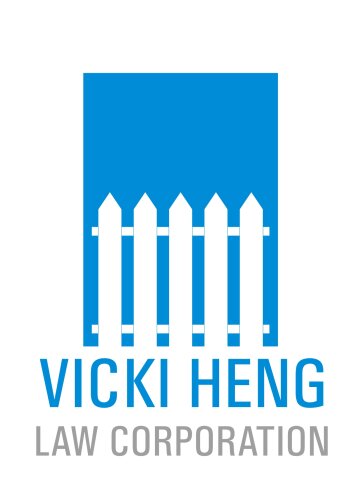Best Collaborative Law Lawyers in City Hall
Share your needs with us, get contacted by law firms.
Free. Takes 2 min.
Free Guide to Hiring a Family Lawyer
List of the best lawyers in City Hall, Singapore
About Collaborative Law in City Hall, Singapore
Collaborative Law in City Hall, Singapore is a form of alternative dispute resolution where parties work together in a cooperative manner to resolve conflicts without going to court. This approach involves both parties agreeing to engage in collaborative negotiations, focusing on finding mutually beneficial solutions rather than engaging in adversarial litigation.
Why You May Need a Lawyer
You may need a lawyer in Collaborative Law to ensure your rights are protected, to navigate legal complexities, and to help you prepare and negotiate agreements effectively. Lawyers can provide legal advice, guidance, and representation throughout the collaborative process, working towards a fair and satisfactory resolution.
Local Laws Overview
In Singapore, the Collaborative Family Practice is recognized as a legitimate method for resolving family disputes. The practice focuses on reaching agreements that prioritize the best interests of any children involved, ensuring fair and equitable solutions. Parties engaging in collaborative law must sign a Participation Agreement, committing to the process and agreeing not to resort to litigation.
Frequently Asked Questions
What are the benefits of Collaborative Law in Singapore?
Collaborative Law in Singapore offers a more amicable and cost-effective way to resolve disputes, allows parties to maintain control over the outcome, and prioritizes confidentiality and privacy.
How is Collaborative Law different from mediation?
In Collaborative Law, each party is represented by their own lawyer, and there is a commitment to reach a mutually acceptable agreement. Mediation involves a neutral mediator facilitating conversations between parties to reach a settlement.
Can Collaborative Law be used for all types of legal disputes?
Collaborative Law is typically used for family law matters, such as divorce, child custody, and property division. It may not be suitable for all legal disputes, and parties should consult with a lawyer to determine the best approach.
What happens if the collaborative process fails to reach an agreement?
If the collaborative process fails to reach an agreement, the parties will need to seek alternative dispute resolution methods or pursue litigation through the court system.
How long does the Collaborative Law process typically take in Singapore?
The duration of the Collaborative Law process can vary depending on the complexity of the issues involved and the willingness of parties to cooperate. It can range from a few months to a year or more.
Are the agreements reached through Collaborative Law legally binding in Singapore?
Once parties reach a settlement agreement through Collaborative Law, it can be formalized into a legally binding contract that is enforceable in Singapore.
What are the qualifications of a Collaborative Law lawyer in Singapore?
Collaborative Law lawyers in Singapore are required to undergo specific training in collaborative practice and must be qualified to represent clients in family law matters. They should be experienced in negotiation, communication, and conflict resolution.
How much does it cost to hire a Collaborative Law lawyer in Singapore?
The cost of hiring a Collaborative Law lawyer in Singapore can vary depending on the lawyer's experience, the complexity of the case, and the specific services required. It is advisable to discuss fees and charges upfront with your lawyer.
Can I switch from Collaborative Law to traditional litigation if needed?
If the collaborative process proves unsuccessful, parties may choose to pursue litigation through the court system. However, this transition may involve different lawyers and a different approach to resolving the dispute.
What are the key principles of Collaborative Law in Singapore?
The key principles of Collaborative Law in Singapore include open communication, transparency, mutual respect, commitment to reaching a fair resolution, and prioritizing the best interests of any children involved.
Additional Resources
For more information and resources on Collaborative Law in Singapore, you can visit the Singapore Mediation Centre (SMC) website, the Family Justice Courts website, or consult with a qualified Collaborative Law lawyer.
Next Steps
If you are considering Collaborative Law in City Hall, Singapore, and need legal assistance, the first step is to consult with a qualified Collaborative Law lawyer who can provide guidance on the process, your rights, and the best approach for resolving your dispute. Be prepared to openly communicate, cooperate, and work towards a collaborative agreement that meets your needs and interests.
Lawzana helps you find the best lawyers and law firms in City Hall through a curated and pre-screened list of qualified legal professionals. Our platform offers rankings and detailed profiles of attorneys and law firms, allowing you to compare based on practice areas, including Collaborative Law, experience, and client feedback.
Each profile includes a description of the firm's areas of practice, client reviews, team members and partners, year of establishment, spoken languages, office locations, contact information, social media presence, and any published articles or resources. Most firms on our platform speak English and are experienced in both local and international legal matters.
Get a quote from top-rated law firms in City Hall, Singapore — quickly, securely, and without unnecessary hassle.
Disclaimer:
The information provided on this page is for general informational purposes only and does not constitute legal advice. While we strive to ensure the accuracy and relevance of the content, legal information may change over time, and interpretations of the law can vary. You should always consult with a qualified legal professional for advice specific to your situation.
We disclaim all liability for actions taken or not taken based on the content of this page. If you believe any information is incorrect or outdated, please contact us, and we will review and update it where appropriate.















